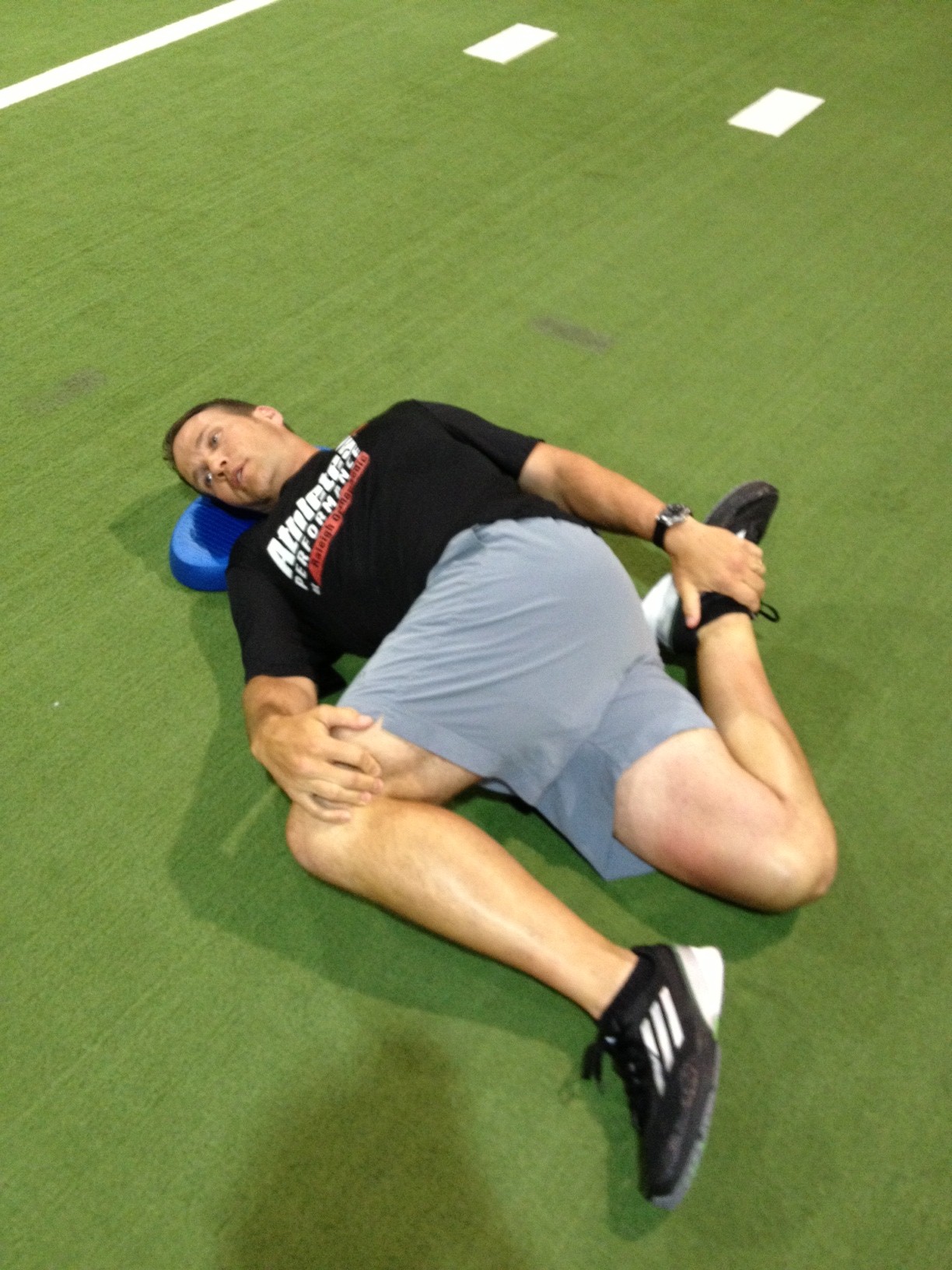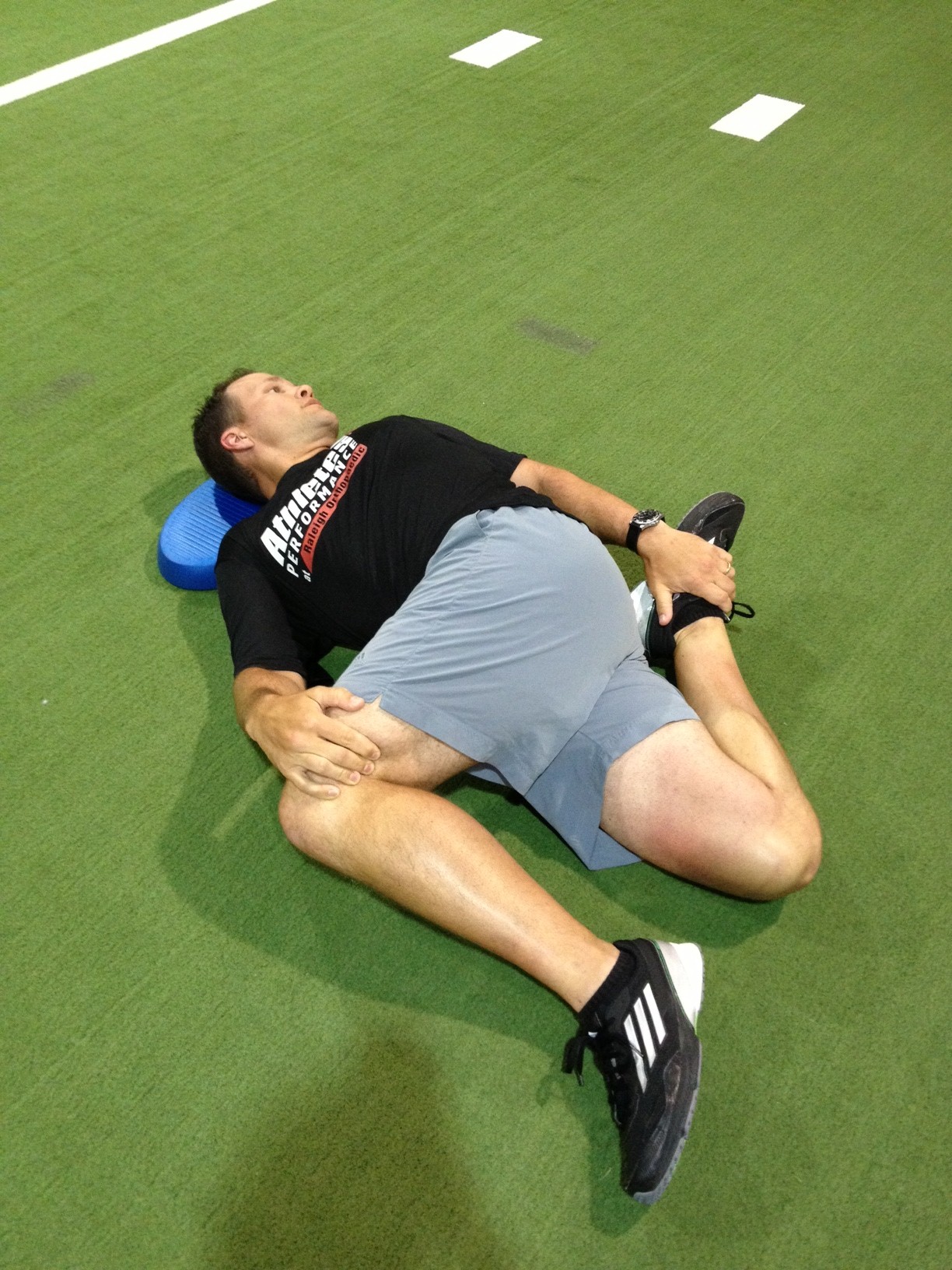
Shoulder mobility limitations are often present in clients and many times are related to poor thoracic spine mobility. Addressing any asymmetry and resolving kinetic chain tightness is important to reduce injury risk and optimize mobility. This stretch can be used as a FMS corrective for shoulder limitations as well as total body mobility.
Execution:
Begin in a side lying position. If lying on the right side, slowly flex the left hip up toward the chest as far as possible so the angle between the torso and hips is less than 90 degrees. Next, extend the right hip, flex the knee and reach back with the left hand to pull the left foot/heel toward the right glute.
Take up all available slack between the hips keeping the neck in a relaxed and neutral position. Finally, perform a slow controlled shoulder turn to the left while allowing the head eyes to follow. Hold the stretch for 20-30 seconds while practicing slow controlled diaphragmatic breathing. Perform 2-3 repetitions, and then repeat the sequence on the other side.
One suggestion for gaining addition range of motion is utilizing a contract-relax method in which you instruct the client to gently pull the hips toward one another (against the resistance of the hands) for 2-3 seconds and then release and take up any additional slack or rotation that becomes available.
Execution:
Begin in a side lying position. If lying on the right side, slowly flex the left hip up toward the chest as far as possible so the angle between the torso and hips is less than 90 degrees. Next, extend the right hip, flex the knee and reach back with the left hand to pull the left foot/heel toward the right glute.
Take up all available slack between the hips keeping the neck in a relaxed and neutral position. Finally, perform a slow controlled shoulder turn to the left while allowing the head eyes to follow. Hold the stretch for 20-30 seconds while practicing slow controlled diaphragmatic breathing. Perform 2-3 repetitions, and then repeat the sequence on the other side.
One suggestion for gaining addition range of motion is utilizing a contract-relax method in which you instruct the client to gently pull the hips toward one another (against the resistance of the hands) for 2-3 seconds and then release and take up any additional slack or rotation that becomes available.
 |  |
Application:
This is an excellent full body stretch that addresses quadriceps and hip flexor tightness on the extended leg and glute, piriformis and low back tightness with the hip flexed position. Moreover, thoracic spine limitations will become apparent and can be addressed with this stretch. Improving thoracic spine mobility will ultimately reduce strain and injury risk for the shoulder complex.
Additional notes:
If a client is unable to grasp the foot on the extended hip for any reason, consider using a rope or stretching strap to assist in pulling the foot up until adequate flexibility is attained. Do not force through any pain at any time. Lastly, ensure that the neck is relaxed and not under strain at any time.
Brian Schiff, PT, OCS, CSCS, is a licensed physical therapist, respected author and fitness professional. Currently, he serves as the supervisor at the Athletic Performance Center in Raleigh, NC. Brian presents nationally at several professional conferences and seminars on injury prevention, rehab and sport-specific training. For more cutting edge training information, subscribe to his monthly Training & Sports Medicine Update at www.BrianSchiff.com.

















